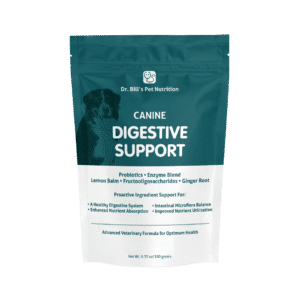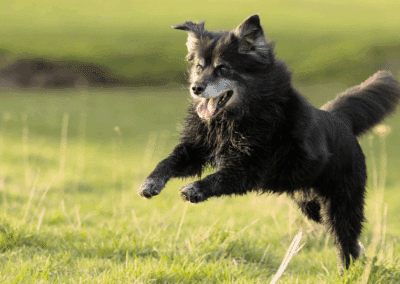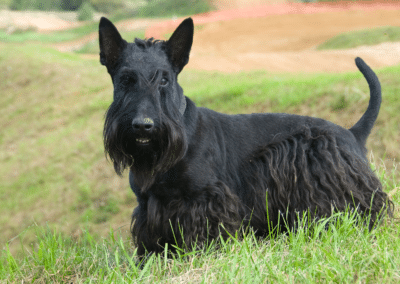Whether our dogs are opportunists when it comes to food or we choose to feed them when they beg, we may think that there’s no real harm when our furry friends chow down on some of our human food. However, this couldn’t be further from the truth as a surprising amount of common foods we eat pose harmful and toxic effects to our canine companions. Before letting them eat what’s on your plate, keep reading to learn what types of foods are toxic to dogs.
Toxic Foods for Dogs
Below we list and describe the top-10 most toxic foods for dogs to eat:
- Chocolate: Everyone knows not to feed their dogs chocolate, although they still seem to occasionally get into the rare chocolate bar that was accidentally left on the table. Containing a stimulate called theobromine, which dark chocolate has a higher quantity of, eating this delicious treat is unfortunately poisonous for dogs as it can cause their kidneys to shut down.
- Garlic: Considered one of the most toxic foods for dogs, it’s important to keep any foods that contain garlic away from paws reach. Ingesting garlic can severely damage your canine’s red blood cells and can even cause veins to rupture if enough garlic is eaten.
- Onions: Similar to garlic, onions contain compounds that have been known to damage red blood cells in canines, which can lead to anemia and a host of other health issues. Before feeding your dog a bit of human food, check the ingredients to make sure it does not contain onions, onion flakes, onion powder, or any onion-derived ingredients.
- Alcohol: While this may sound obvious, some people out there may find it amusing to let their dog drink alcohol. Under no circumstances is alcohol appropriate to feed your furry friend as it can lead to many serious health issues such as difficulty breathing, seizures, abnormal blood acidity, vomiting, diarrhea, comas, and even death.
- Avocados: As healthy as avocados are for humans, they’re contradictorily poisonous for dogs. Avocados contain a substance called persin that can cause canines to profusely vomit and diarrhea. Additionally, if eaten in large enough quantities, avocados can trigger fluid build-up in the chest and lungs which can lead to breathing difficulties and even death.
- Caffeine: As eager as your dog is to sip your coffee, don’t let them! Caffeine contains a substance called methylxanthine which can cause various debilitating health issues such as seizures, irregular heartbeats, difficulty breathing, diarrhea, vomiting, and much more.
- Grapes: Surprisingly, grapes can cause significant kidney damage in dogs. Given how they can’t digest grapes, a build-up commences in their kidneys which can lead to lethargy, dehydration, rapid breathing, and a loss of appetite. If the dog hasn’t been treated at this stage, kidney failure can cause the canine to either fall into a coma or unfortunately pass away.
- Raisins: Similar to the debilitating kidney symptoms that grapes can cause upon dogs, raisins can be just as fatal to your furry friend. While researchers don’t completely understand which substance in raisins cause this reaction, a mere handful of raisins can fatal to a dog if ingested.
- Salt: Human food is loaded with salt, which is why so much of our food can be fatal to dogs. Eating too much salt can cause canines to experience water deprivation, which is a form of salt poisoning. Salt poisoning can cause numerous neurological disorders, tremors, seizures, fevers, cerebral edema, vomiting, diarrhea, depression, and even death.
- Dairy Products: Milk, cheese, yogurt, and any other dairy products can cause significant digestive problems in dogs. Due to having low levels of lactase in their guts, dogs are unable to break down the sugars in milk like humans can. While usually not fatal, a canine’s lactose intolerance can lead to lethargy, diarrhea, and vomiting.
Other foods that are toxic to dogs:
- Chives
- Gum
- Apple seeds
- Mushrooms
- Apricot, cherry, and peach pits
- Candy
- Yeast dough
- Citrus
How to Ensure Optimal Canine Nutrition
If you believe your dog has ingested any of the foods above, it’s essential to visit your veterinarian as soon as possible. While recovering, it’s also important to feed your furry friend the right nutrients as the canine gut is a complex collection of microorganisms that help manage a range of bodily functions.
Fortunately, Dr. Bill’s Canine Digestive Support is a highly potent canine health supplement in the form of a powder that provides a concentrated level of 41 essential nutrient ingredients required for the support and maintenance of a healthy digestive system. It contains a unique enzyme blend, powerful ingredients known for absorbing and removing harmful intestinal toxins, and a complex system of pre and probiotics formulated specifically for the dog.
-
Canine Digestive Support$31.99 — or subscribe and save 10%









0 Comments